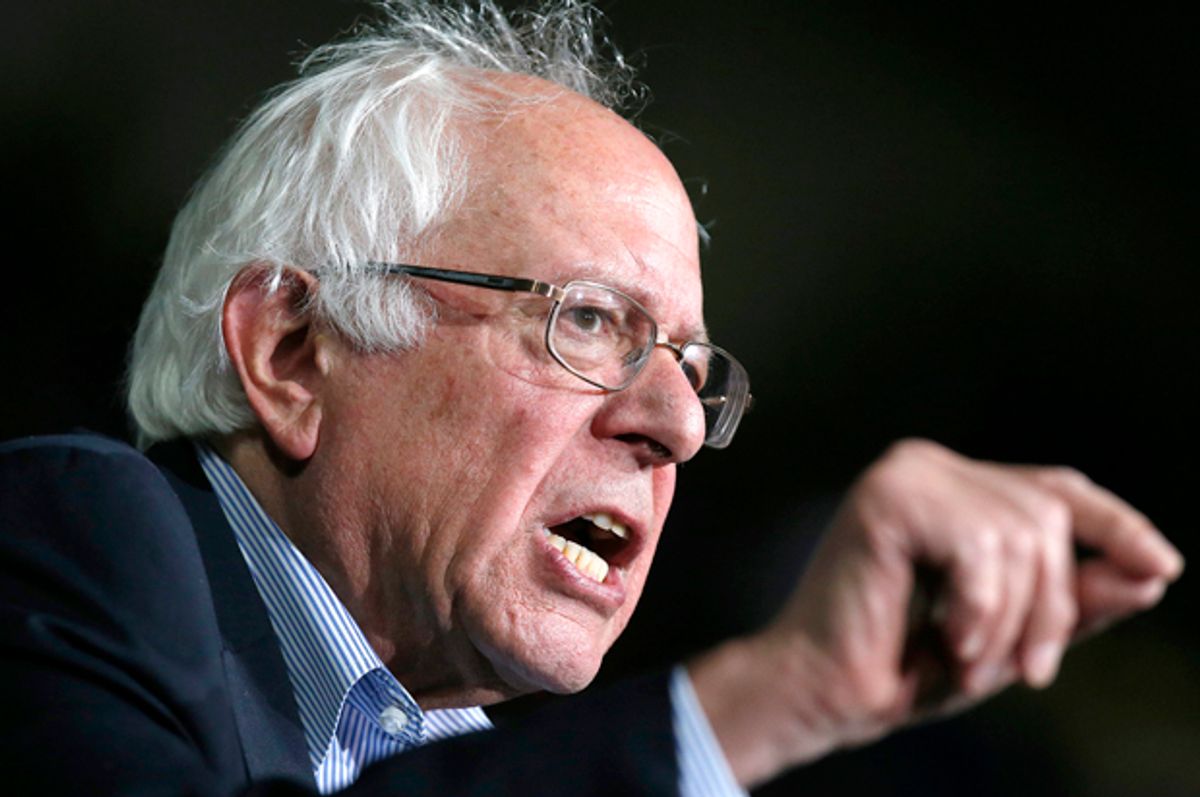Ask any journalist or news junkie how they think Sen. Bernie Sanders’ presidential campaign is going, and you’re probably going to hear the same answer: Great!
Whether they’re socialists or liberals or moderates or conservatives hardly matters. Even those allied with his opponent, former Secretary of State Hillary Clinton, are quick to say (albeit through gritted teeth) that the Sanders campaign has performed far beyond their expectations. Praise for Sanders’ campaign is enjoying that rarest of things in American electoral politics — a broad consensus.
By almost every relevant metric, they are right. Sanders is neck-and-neck with Clinton in Iowa, having overcome what was once a 50-point deficit. Things are going even better in New Hampshire, where Sanders, a longtime fixture of politics in neighboring Vermont, is leading Clinton by double-digits. (One poll, a likely outlier, even had him up by nearly 30 percent.) Sanders is raising a lot of money, too. And there’s no doubt that his campaign has the most passionate and dedicated activists.
Well, if you’ve ever read a political op-ed before, you can probably guess what I’m going to do next. Having inflated the Sanders bubble to the popping point, I’m going to deflate it — just a little bit. Because while it is absolutely the case that Sanders’ campaign has done better than many predicted, it hasn’t been entirely smooth sailing. Two developments from earlier this week, in fact, showed that Sanders 2016 is not without its weaknesses.
Those two incidents, in order of importance: 1) Sanders’ referring to two Clinton endorsers — the Human Rights Campaign and Planned Parenthood — as part of the “political establishment” that he’s “taking on” with his campaign; and 2) the publication of a post from Ta-Nehisi Coates that criticizes Sanders’ position on reparations and, more damningly, reveals that the campaign never responded to Coates’ attempts to make contact.
Because it’s not essential to my point, I’m not going to wade into the substance of either issue (for what it’s worth, I’d basically co-sign this post from Kathleen Geier). What matters here is simply noting how both of these hiccups stem from the same basic problem. By running as a principled and fearlessly authentic candidate — by running as an anti-politician politician — Sanders gives himself almost no margin for error when, inevitably, he must do what he’s done for most of the past 40 years: politics.
That is not the only drawback of the anti-politician tack. Because while the pose, if convincingly struck, is appealing to voters, it’s also disconcerting to the entrenched interest groups that, in the era of organized labor’s decline, provide much of the structure and organizational heft of the Democratic Party (aka,“the establishment”). These people may like much of what Bernie Sanders has to say; but by so consciously presenting himself as an outsider to their system, he also represents a potential threat.
So if Sanders takes shots at institutions whose support he’ll need if he wins the nomination, he’s got relatively little benefit of the doubt to fall back on — especially compared to a decades-long party stalwart like Hillary Clinton. While they may give a more traditional candidate a pass, saying to themselves that they know everyone’s on the “same team,” Sanders has more to prove. Remember: He’s long been an independent; not a Democrat. Voters don’t seem to care, but these interests do.
On the flip-side, when Sanders is forced to explain some of the more obviously political moves he’s made in his career — his squishiness on gun control and his preference to subsume race into economics chief among them — he can end up disappointing and angering some fair-weather supporters. Even more, perhaps, than he would if they expected him to be like any other politician. Sanders is pretty good at threading this needle. But sometimes he can’t and his appeals to pragmatism seem disingenuous.
Neither of these hang-ups is necessarily debilitating. Barack Obama pulled the same shtick, too; and while he ended up breaking a lot of liberal hearts he also, y’know, became president. The difficulty for Sanders, though, is that his promises are much more specific when it comes to policy than Obama’s ever were. And unlike Obama, an ability to find the middle ground or bridge divides has never been part of his pitch.
Barring some unexpected collapse, it’s likely that the Sanders campaign will not be making an early exit. And as the media comes to take Sanders more seriously, they’re going to start pushing him harder, too. They’ll want to show that he is, in fact, a politician. That’s rocky ground for any candidate to travel, of course. But by presenting himself as a man who shirks all the compromises and ambiguities of politics, Sanders’ may be making his ride bumpier than it was going to be already.




Shares